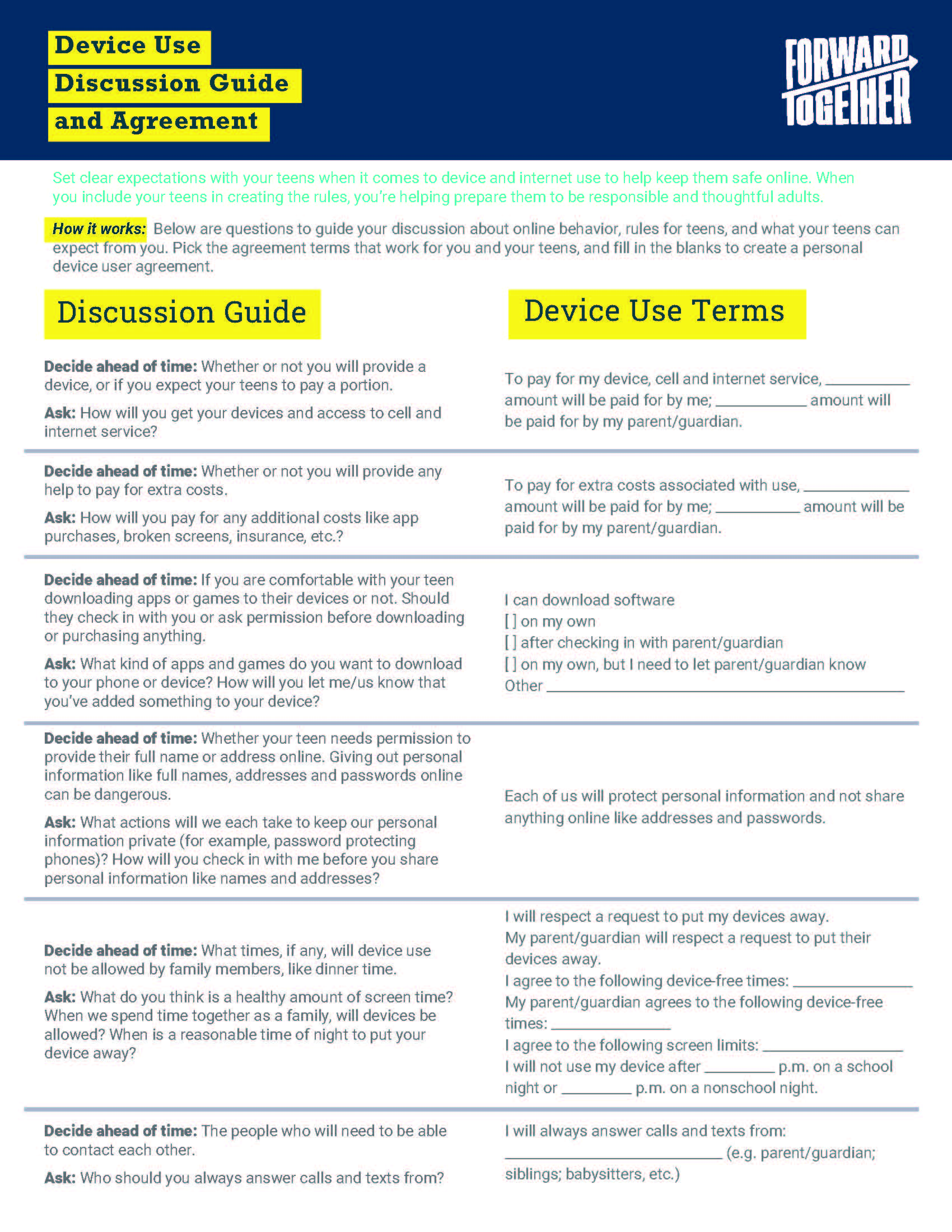Parents and families play a critical role in supporting teens who are being bullied or cyberbullied. Connecting with your teen about how to handle these situations shows them that they’re not alone. Even if they’re not ready to talk immediately, let them know you’ll be there when they are.
Bullying and cyberbullying: from daily stress to long-term trauma
Bullying is not just your run-of-the-mill teenager aggression or gossip. It doesn’t happen just once; it’s repeated over and over again. What truly makes it so terrible is that the teens being bullied often can’t avoid their bullies because they might be in the same class or live in the same building. They may also feel powerless to defend themselves.
For example, in Back to the Future, Biff Tannen relentlessly bullies George McFly. Biff is much bigger than George and has several friends who back him up, both of which make George feel powerless to stand up to Biff.
Cyberbullying is a little different, but its effects are very much the same.
Cyberbullying is bullying through the use of electronics. It can occur through text messaging, social media like Twitter or Instagram, and even through online video games. What is unique about cyberbullying is that when something is posted online, it almost immediately feels inescapable because posts can spread online and get talked about the next day at school. In the vast majority of cases, when teenagers are being cyberbullied they are also being bullied in person. The feeling of powerlessness can be very strong.
One thing to keep in mind when talking with teens about bullying is that the term “bullying” itself may bring about eye rolls. Teens have been warned against bullying other students since they were in elementary school. They’ve been taught to tell an adult if they are targeted by others. It may be helpful to avoid using the term “bullying” and instead focus on the behaviors your teen describes. If they tell you about a behavior that is repeated, and that the person being hurt is not able to defend themselves, your teen may be describing bullying.
“59% of U.S. teens have been bullied or harassed online, and a similar share says it’s a major problem for people their age.” – Pew Research Center

In either case, bullying creates an enormous amount of stress that affects teens’ mental and physical health. Research shows that bullied teens are more likely to experience depression, anxiety, and sometimes long-term damage to their self-esteem.
Don’t solve, listen
If your teen is being bullied they may be concerned that the situation will get worse if they tell you about it.
As parents, we often want to solve our child’s problems and make them feel better — it’s a natural reaction. But as our children grow into teenagers, they may resist our help because they want independence and are learning how to handle social situations on their own. It’s also good for them to do so.
I’ve found that teens are really creative problem solvers. (Just think of all the creative explanations they can come up with when they do something they know you wouldn’t approve of!)
The best way to approach the conversation is by letting them know you’re there to listen and sympathize.
Letting them come up with solutions is really important because if they come up with the idea they are more likely to try it.
Making yourself available, hearing their ideas, and guiding them to possible solutions by asking questions can be a great approach for many issues, including this one.
Try this!
After listening, ask your teen what ideas they have for fixing the problem. Try questions like:
- What do you think would be a good solution?
- Do you need help to make your solution happen?

Discuss your rules and expectations… and theirs. You and your teen should both know the rules before they log on.
One strategy I suggest that can help your children avoid online cyberbullying is to create a “Device Use Agreement” that serves as a contract between you and your teen.
Your teen agrees to a set of expectations for using their device, like not sharing personal information online and limits on screen time. You also agree to a set of expectations as their guardian, like how you will respect their privacy and how much you will pay for service. Expectations will look different for every family!
If you need help
There may be instances of bullying that aren’t easy to solve.
If you think your teenager is having trouble and you need more support to help them, you can contact Colorado Crisis Services to talk through resources. Schools throughout Colorado also partner with Safe2Tell for anonymously reporting bullying incidents. It’s important to first talk with your teenagers about making a report of bullying to get their perspective whether that would make the situation better or worse for them.
Knowing they can rely on you IRL (in real life) will help your teens keep their online experience safe and respectful.

Adam Collins
Adam Collins, Ph.D., is the Statewide Bullying Prevention Manager and an MTSS Specialist at the Colorado Department of Education. Dr. Collins most recently served as a K-5 school psychologist in the Adams 12 School District where he had first-hand experience in the development and practical application of MTSS, RtI, and school-wide bullying prevention. He received his doctorate degree from the University of Nebraska-Lincoln in School Psychology with a focus on bullying prevention and intervention. Dr. Collins has co-authored several book chapters and presented on bullying prevention to various stakeholders including schools, companies, and organizations.




